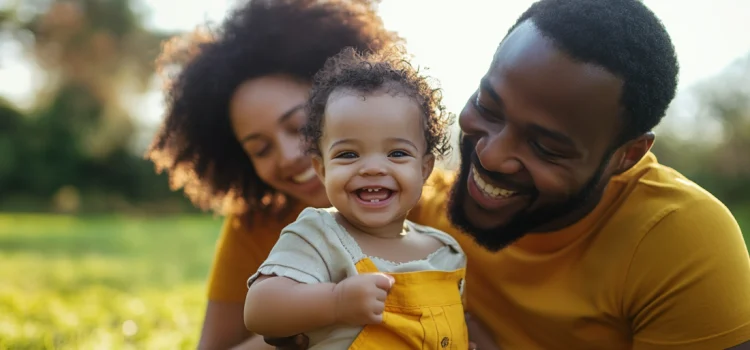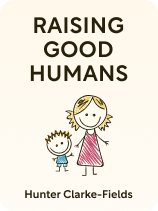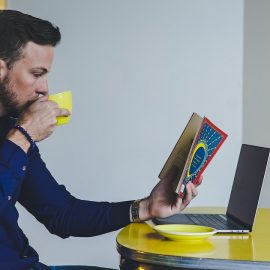

This article is an excerpt from the Shortform book guide to "Raising Good Humans" by Hunter Clark-Fields. Shortform has the world's best summaries and analyses of books you should be reading.
Like this article? Sign up for a free trial here.
Do you want to be the best parent for your child? How does simplifying your space improve your child’s life?
According to Hunter Clarke-Fields, building your relationship with your child doesn’t happen all at once. To strengthen your connection, she recommends two key practices: spending focused time with your child and creating a simple, low-stress environment at home.
Discover how to be a better parent by using these two practices.
Spend Intentional Time With Your Kids
Setting aside intentional time means actively carving out periods in your day exclusively for connecting with your child, undistracted by your to-do list or the messy house. This isn’t about squeezing them in between emails or chores; it’s about fully being there with them.
Focused play is a powerful tool for learning how to be a better parent. When you play with your child, giving them your full attention, it makes the play more enjoyable and deepens the bond between you. During these moments, engage with whatever activity they’re interested in—whether that be building blocks, drawing, or storytelling—and don’t try to redirect their play or multitask.
Clarke-Fields recommends telling your child that you’re going to focus only on them. Then, set a timer, and do your best to only pay attention to them for that time period.
(Shortform note: Setting aside intentional time to play with your child, as recommended by Clarke-Fields, aligns closely with extensive research highlighting the profound benefits of play in child development. Play is not just a simple activity; it’s a crucial part of learning and emotional growth. Engaging in focused play sessions where you give your undivided attention helps build strong, positive connections between you and your child. It aids in developing their social-emotional skills, cognitive abilities, and language skills—all foundational elements that contribute significantly to their overall development.)
Simplify Your Life
Clarke-Fields also explains that your home environment and schedule have an impact on your relationship with your child. Busy schedules and cluttered environments increase stress—both for you and your family. Simplifying your living space reduces distractions and stressors, making it easier for everyone to engage more deeply in mindful interactions.
(Shortform note: Busy schedules and cluttered environments increase stress due to their impact on cognitive load and emotional well-being. Constant busyness makes time management difficult, causing you to feel overwhelmed and have heightened stress levels. Similarly, cluttered spaces contribute to feelings of chaos and lack of control, exacerbating stress and anxiety. A study found that clutter in the home can trigger an elevation in cortisol, a hormone associated with stress, indicating the impact of physical disarray on psychological health. Together, these factors create a feedback loop that makes it increasingly difficult for you to achieve relaxation and mental clarity.)
To simplify your life, Clarke-Fields recommends taking time to simplify your stuff, simplify your schedule, and minimize screen time.
First, she suggests you declutter the house as a whole family. Choose toys and belongings that hold genuine value or bring joy; donate what no longer serves these purposes. She also recommends establishing predictable, realistic routines. Regular schedules reduce chaos. Make sure your schedule has plenty of time for free play, relaxation, and connection.
| Decluttering While Parenting Marie Kondo (The Life-Changing Magic of Tidying Up), known for her tidying expertise and the KonMari Method, has recently shifted her focus from maintaining a perfectly organized home to prioritizing quality time with her family. Following the birth of her son in April 2021, she has adopted a more relaxed approach to clutter and emphasizes enjoying family moments over strict tidiness. Her 2023 book, Marie Kondo Kurashi at Home: How to Organize Your Space and Achieve Your Ideal Life, reflects this new perspective on balancing life’s responsibilities with the joys of a growing family. Residing in California with her three children, Kondo promotes self-acceptance and flexibility in parenting—a significant evolution from her earlier views on meticulous home organization. |
Finally, Clarke-Fields suggests minimizing screen time—for you and your kids. She explains that it’s up to you to model healthy behavior. She recommends having phone-free times or spaces that allow the whole family to disconnect from screens in order to be more present with each other.
| The Family Media Use Plan The Family Media Use Plan, developed by the American Academy of Pediatrics (AAP), is a tool designed to help families manage and balance their use of digital devices and media. This personalized plan aims to ensure that screen time is used in a healthy way, promoting online safety and positive habits. Key components of the plan include designating media-free times and zones, such as during dinner or in bedrooms, to encourage family interaction and support healthy sleep routines. It also involves prioritizing responsibilities like homework, chores, and physical activity, ensuring these are not overshadowed by screen time. Additionally, the plan sets daily or weekly limits on recreational screen time, following AAP’s guidelines for various age groups. Families are encouraged to select high-quality, educational, or developmentally appropriate content and to engage with media together. Co-viewing allows parents to monitor what their children consume and facilitates discussions about their media experiences. This holistic approach helps families foster a balanced and mindful media environment. |

———End of Preview———
Like what you just read? Read the rest of the world's best book summary and analysis of Hunter Clark-Fields's "Raising Good Humans" at Shortform.
Here's what you'll find in our full Raising Good Humans summary:
- How to use mindfulness to manage emotions—both yours and your child's
- Four steps to resolving conflicts with your child
- Practical strategies for creating a simple, low-stress environment at home






